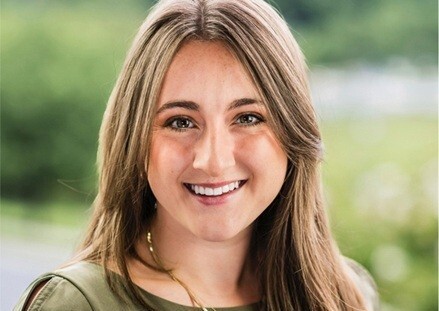
When Cristina Youwakim, M.E., first encountered Vanderbilt’s Master of Engineering in Surgery and Intervention Program (MESIP), she was at a crossroads. With a background in both engineering and patient care, she was searching for a path that wouldn’t force her to choose between her two passions. What she found in MESIP was more than a program—it was a launchpad for a career that blends clinical immersion, technological innovation, and purpose-driven design.
“I thought I was going to have to compromise by choosing one passion for my career path and leaving the other behind,” Cristina recalls. “MESIP showed me I didn’t have to.”
A Curriculum That Adapts to You
MESIP’s flexible structure allowed Cristina to tailor her coursework to both deepen existing skills and explore new ones. She advanced her expertise in SolidWorks and 3D printing while diving into machine learning and Python-based data analysis—skills she now uses daily as a Product Development Engineer at LifeLens Technologies.
“If the program wasn’t flexible, I don’t think I ever would have taken a Python course,” she says. “And I never would have been able to bring these skills to my new job.”
Learning Where It Matters Most: The OR
Cristina’s experience wasn’t confined to the classroom. Through MESIP’s clinical immersion, she observed open-heart surgeries firsthand, gaining critical insight into the operating room’s nuances—insight that now informs her design decisions.
She also participated in the Provocative Questions course, where physicians posed real-world challenges and invited engineering solutions. These sessions helped Cristina develop a user-centered mindset, always keeping the needs of both patients and providers at the forefront.
From Prototype to Purpose
Cristina’s capstone design project exemplifies MESIP’s hands-on ethos. Collaborating with cardiac surgeon Dr. Coyan, she developed an ex vivo heart perfusion device—an experience that sharpened her technical skills and taught her how to anticipate and navigate project obstacles.
“I carry everything I learned from this experience into my new role,” she says
At LifeLens Technologies, Cristina now contributes to the development of a novel continuous monitoring device capable of measuring over 400 physiological parameters—directly addressing challenges raised by physicians during her time at Vanderbilt.
“I feel a great sense of purpose in my position,” she says. “The program taught me technological and professional skills that not only make me capable of the responsibilities of my role, but also confident in myself to excel.
Advice for Future Innovators
Cristina encourages prospective students to lean into the full spectrum of opportunities MESIP and Vanderbilt’s Institute for Surgery and Engineering (VISE) offer.
“Ask as many questions as you possibly can and immerse yourself in the variety of disciplines and environments Vanderbilt has to offer,” she advises. “VISE provides not just equipment and expertise, but a community that makes all students feel welcome.”
Cristina Youwakim’s journey is a testament to MESIP’s power to unlock multidimensional careers in MedTech. For engineers who dream of innovating at the intersection of technology and medicine, MESIP offers not just a degree—but a direction.
If you are ready to take your engineering skills to the next level and make a meaningful impact in the medical field, consider applying to Vanderbilt's Master of Engineering in Surgery and Intervention Program. Just like Cristina, you can transform your education into a rewarding career in medical innovation.


